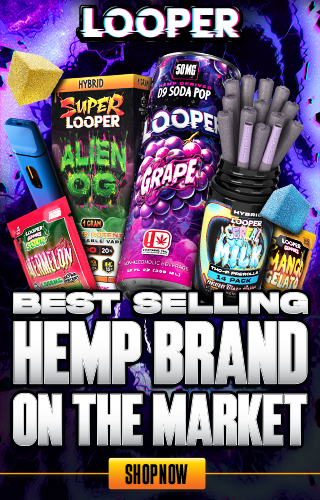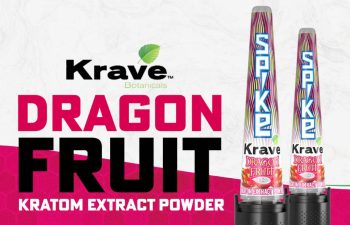Dear Industry:
It’s time we had a talk. The words here will not be easy to digest, and thus I will attempt to tread lightly, but some things need to be said. Here goes . . .
This industry has always thrived on pushing limits, driving innovation, and staying ahead of the curve. But there’s a fine line between progress and risk, and walking the show floor this past February, I couldn’t shake the feeling that some were edging too close to it.
The first thing that hit me when I walked the trade show floor was a captivating reminder of what makes this space so exhilarating—the relentless creativity, the fearless entrepreneurship, the sheer energy of a market that refuses to stand still. Every aisle showcased fresh ideas and bold opportunities, proving once again that this industry never stops evolving.
But.
There was also an overwhelming sense of déjà vu. The unchecked enthusiasm, the stacks of gray-market goods, the casual dismissal of potential consequences—it all felt eerily reminiscent of the early 2010s, a time when explosive growth blinded many to the risks they were taking. Back then, we convinced ourselves the money would keep flowing, that the government wouldn’t care, that we’d be fine. Until we weren’t. Watching companies on the convention center floor flirt with that same overconfidence, I couldn’t help but wonder: Are we about to make the same mistakes all over again?
Let me pause and make it very clear that everything I put forth here is done with respect for the entrepreneurship in the space and a genuine love for the industry. These are my people. But as I walked those teeming corridors of counter-cultural commerce, I couldn’t help but feel a genuine concern over the risks some of the players here are taking by operating this deep into the gray. My point here requires a perspective that can only be obtained by spending years in this wild world of fringe-based entrepreneurship. I first stumbled into the smoke shop universe in 2008. Over the ensuing 17 years, I witnessed it all; the crashes, the raids, the indictments—everything. I was an independent sales rep when Operation Logjam was executed in 2012. Stores around the country were emptied out by armed agents of the state and shut down overnight. By my calculations, I lost a third of my income. Friends were indicted. Lives were destroyed. Why? We can get into the stupidity of the Drug War and the scaremongering of preening politicians, but for our part, we arguably flew too close to the Sun.
This isn’t a “repent or perish” narrative, though. I do not want anyone to think I am discouraging the incredible exploration and explosive commerce currently taking place in our little corner of the marketplace. I’m fully Team Smoke Shop, Team Consumables, and most importantly, Team Personal Freedom. I am admittedly left-leaning on most social issues, but I have a libertarian streak at my core and thus believe in the autonomy of the individual to make their own health and recreational choices, as well as that of businesses to provide those remedies that meet market demand. I should also point out that my personal track record reveals an overabundance of caution. I was part owner of a kratom brand in 2014, and when the FDA released its import ban, I immediately dissolved my ties with the company, convinced we’d see the same sorts of crackdown we’d seen on other compounds just a few years prior. Fast-forward to now: All of my scrappy colleagues who were just getting their feet wet in that space are now multi-millionaires. Clearly, my words alone shouldn’t be enough to convince you to make any rash decisions regarding your inventory management. These are just thoughts to ponder.
And speaking in a purely selfish manner, my livelihood is tied to all of this. We need the vendors as much as the retailers; the retailers as much as the vendors. But in order to plan for the future, we have to understand our past. And too many people I spoke with had no clue of these past incidents I’ve described, now relegated to the annals of countercultural history. The crowning moment of my concern came when one individual handed me a jar of gummies and told me they contained an “analog of [substance redacted].” My jaw hit the floor so hard, I’m surprised I wasn’t picking carpet bits out of my beard for the next hour. I asked him if he understood the implications of what he told me. “I don’t care” was his reply. “I’m done hiding.” All well and good, I suppose, but after watching close friends endure legal hell over the same infraction, I just can’t view this as a wise approach. I respect it, but I also can’t help but feel apprehension—for the sake of that company.
I’ll climb down off my soapbox now. It was tempting to just sweep those thoughts under the rug, but as the core publication of this industry, simply pretending those concerns don’t exist would be a disservice to each and every one of our readers. We’re here as a guide as much as a source, so these conversations are crucial.
Overall, I’m encouraged by the ever-growing flame of entrepreneurial prowess that so animates our industry. Not only do I want to see the continue to test the limits of what is possible, but I want to foster that within the pages of this publication. My only caveat, dear industry, is that we move forward not only with energy and zeal, but with an appreciation of our history and a deep understanding of the risks associated with operating in our world, both from a legal and economic standpoint. Keep pushing the boundaries. But also, keep a lawyer on retainer and listen to every damn word he or she has to say. Monitor every move of your legislative and regulatory bodies, be they on the municipal, state or federal level—and lobby your representatives. Finally, know when to pivot. As the classic tune so eloquently puts it, “You’ve got to know when to hold’em, know when to fold’em.” There isn’t a song in this world more prescient for our market.
Read more like this at HeadQuest.com
Editor’s Note: This is an opinion piece and does not necessarily reflect the views of HQ Magazine. It is written with respect for the entrepreneurs in this space and is not intended to call out or criticize any businesses. Rather, it aims to highlight potential risks and encourage thoughtful discussion about the industry’s future. HQ Magazine remains committed to supporting and informing the businesses that drive this market forward.



















